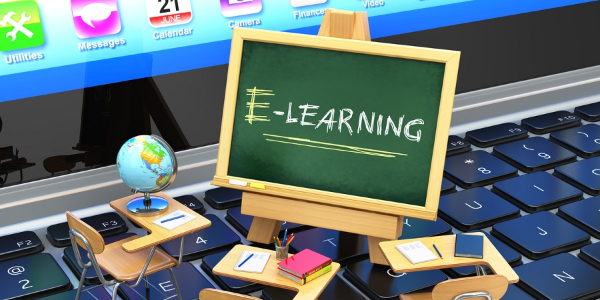
EDUCATION
IN THE TECH ERA
Technology
is playing a transformative part in shaping the future of education in several
ways:
1. Access to Information: Thanks to the Internet,
a plethora of educational resources and information is easily available to
anyone with an Internet connection. This has enabled individuals from all
corners of the world to gain access to valuable knowledge and learning
materials.
2. Online Learning Platforms: Several learning
platforms such as Coursera, LinkedIn, Udemy etc., provide a diverse range of
courses and educational content. These platforms offer flexible learning
options, allowing learners to study according to their schedules.
3. Personalized Learning: Customized education
can be achieved using adaptive learning systems and educational tools powered
by AI. By utilizing student data, these systems can provide customized
instruction, adjust difficulty levels, and offer real-time feedback, ultimately
enhancing the effectiveness of the learning process.
4. Virtual Reality (VR) and Augmented Reality
(AR): These tools are utilized in the educational sector to provide learners
with an immersive and interactive learning experience. By leveraging these
technologies, learners can virtually explore historical sites, conduct science
experiments, and even simulate surgical procedures with minimal risk.
5. Blended Learning: In recent years, it has
become more prevalent to incorporate online learning tools alongside
traditional classroom teaching methods. This approach offers the advantages of
flexible learning options and tailored learning experiences, while still
maintaining the valuable benefits of face-to-face interaction.
6. Artificial Intelligence (AI): Students can
benefit from AI-powered chatbots and virtual tutors that are available around
the clock to provide immediate assistance and guidance. Additionally, AI can
analyze data on student performance to pinpoint areas where extra support is
required.
7. Gamification: Educational apps and platforms
that incorporate gamification techniques are designed to make learning more
enjoyable and stimulating. By using elements commonly found in games, such as
points, badges, and leaderboards, students are incentivized to make progress
and are rewarded accordingly.
8. Remote Learning: The COVID-19 outbreak
expedited the acceptance of distance education. Despite the difficulties it
brought, it showcased how technology can facilitate remote learning and provide
access to education during emergencies.
9. Big Data and Analytics: Data analytics is
being utilized by educational institutions to obtain valuable insights into the
behavioral patterns and performance of students. This information can be
utilized to develop effective teaching strategies and identify students who
require additional support to mitigate the risk of academic underachievement.
10. Digital Textbooks: The trend in education is
shifting towards digital textbooks and e-books, which are becoming more
prevalent than traditional printed materials. These digital materials offer
interactive features and multimedia components, resulting in a more engaging
and immersive learning experience.
11. Ease of Access: The advancement of technology
has significantly enhanced the ability of students with disabilities to access
educational materials. By utilizing assistive technologies such as screen
readers and captioning, educational content can be made more inclusive and
accessible.
12. Professional Development: Educators and
teachers have the opportunity to enhance their teaching abilities and remain
up-to-date with the newest teaching methods by accessing online resources and
courses.
13. EdTech Startups: There is a growing number of
startups that are venturing into the field of education technology to introduce
new and innovative solutions that can help improve the way people learn.
The
transformative potential of technology in education is vast, but it is crucial
to consider the challenges that come with it. These include bridging the
digital divide to ensure equitable access to technology, protecting student
privacy in a digital age, and providing sufficient training for teachers to
integrate technology into their instruction. The future of education will
involve a combination of traditional and tech-driven approaches, resulting in
more customized, accessible, and successful learning experiences.
By
FIONA
LOBO

Modernize Your Resume - Get Hired FasterIn today’s fast-paced job market, standing out from the cro...
Mindtree Intl 13 Jun 2024
IntroductionIn the ever-evolving realm of Talent Management, organizations continually seek innovat...
Mindtree Intl 16 Jan 2024
10 SKILLS YOU WILL NEED TO SUCCEED IN THE POST-COVID CORPORATE WORLDThe ongoing Covid-19 Pandemic...
Mindtree Intl 11 Dec 2023
The Digital Culture Catalyst: Social Platforms and ChangeSocial communication platforms possess imm...
Mindtree Intl 11 Dec 2023
The Psychology of Decision-Making in the Digital EraIn today's evolving digital geography, the psy...
Mindtree Intl 11 Dec 2023
The Triad of TransformationThere seems to be a prevalent tendency among many people, to underestima...
Mindtree Intl 11 Dec 2023
EDUCATION IN THE TECH ERATechnology is playing a transformative part in shaping the future of educ...
Mindtree Intl 11 Dec 2023
RECIPE FOR PRODUCTIVITYINGREDIENTS:· 1 cup of Time...
Mindtree Intl 11 Dec 2023